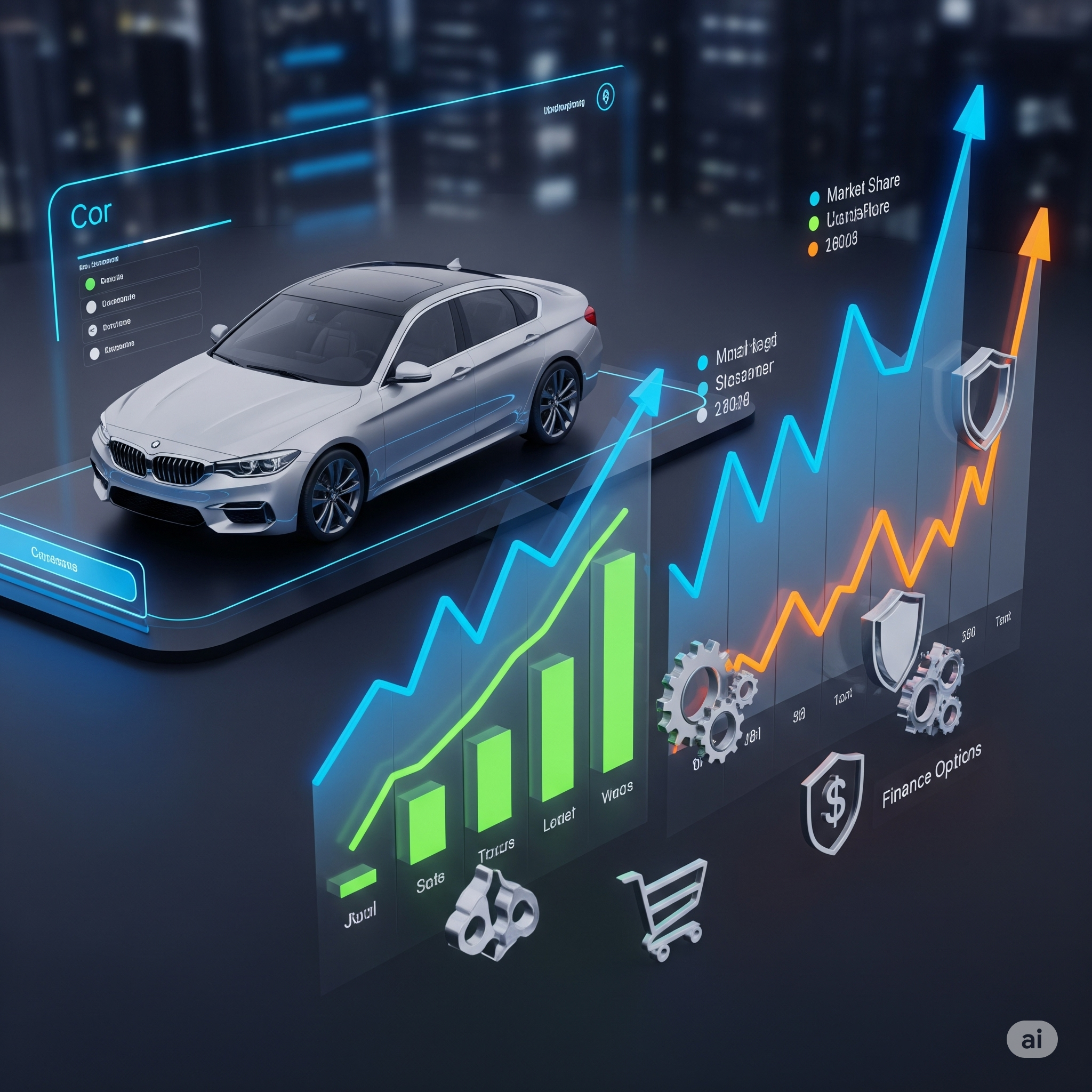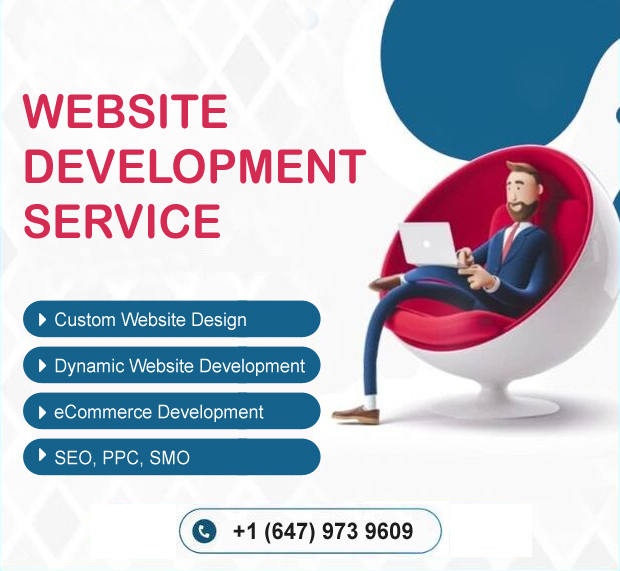The automobile industry is one of the most competitive and fast-evolving sectors worldwide. From car manufacturers and dealerships to spare parts suppliers and service centers, every player in the industry is striving to attract, engage, and retain customers. In today’s digital age, the first impression of any automobile business is often formed online. Whether someone is looking to purchase a new car, browse accessories, or book a service appointment, they will most likely begin their journey on a website.
This is where automobile website development becomes critical. A well-designed automobile website is more than just an online catalog of vehicles or services it is a complete digital experience that builds trust, drives conversions, and helps businesses stay ahead of competitors.
In this blog, we will explore the importance of website development in the automobile sector, key features that make automotive websites successful, trends shaping the future, and how businesses can leverage digital platforms to accelerate growth.
Why Automobile Website Development Matters
1. Digital-First Customer Behavior
Modern buyers rely heavily on digital platforms before making purchasing decisions. According to studies, a majority of automobile buyers conduct online research before visiting a showroom. This includes checking vehicle specifications, comparing prices, reading reviews, and exploring financing options.
Without a strong website presence, automobile businesses miss out on engaging this vast pool of potential customers.
2. Showcasing Vehicles and Services
An automobile website acts as a digital showroom, displaying cars, bikes, or other vehicles with high-quality images, videos, and 360-degree views. Beyond vehicles, it can highlight after-sales services, spare parts availability, and promotional offers.
3. Building Trust and Brand Image
A professional, user-friendly website conveys credibility. Customers are more likely to trust a dealership or service provider that offers an informative and interactive website experience than one with a poorly designed or outdated platform.
4. Boosting Lead Generation
From test-drive bookings to financing inquiries, an automobile website can be optimized to capture leads effectively. Smart call-to-actions (CTAs), forms, and chatbots can convert visitors into potential buyers or service customers.
5. Staying Competitive
In a competitive market, businesses with strong websites and digital marketing strategies outperform those relying only on physical presence. A website also makes it easier to integrate digital campaigns like pay-per-click ads, SEO, and social media marketing.
Key Features of a Successful Automobile Website
For automobile websites to truly make an impact, they must go beyond aesthetics and focus on functionality, customer convenience, and interactivity. Here are some essential features:
1. Responsive Design
Since most customers access websites from smartphones, mobile responsiveness is non-negotiable. The website should adjust seamlessly across devices.
2. Vehicle Search and Filter Tools
Customers should be able to search and filter vehicles based on model, price, fuel type, transmission, color, and other preferences.
3. High-Quality Media
360-degree car views, interactive videos, and virtual tours enhance user experience and help customers visualize their purchase.
4. Online Booking and Test Drive Scheduling
Allowing customers to book test drives, services, or consultations online adds immense convenience.
5. Financing and Loan Calculators
Automobile purchases often involve financing. Adding loan calculators, EMI estimators, and online application forms simplifies the decision-making process.
6. Inventory Management Integration
For dealerships, real-time inventory updates ensure that customers always see accurate stock availability.
7. Customer Reviews and Testimonials
Positive reviews build credibility and influence buying decisions.
8. Chatbots and Customer Support
AI-powered chatbots can answer FAQs, guide customers, and assist in lead conversion 24/7.
9. SEO-Friendly Structure
To attract organic traffic, automobile websites must be optimized for search engines with proper meta tags, structured data, and fast-loading pages.
10. Secure Payment and Booking System
For parts suppliers or online sales, integrating secure e-commerce functionalities is essential.
Types of Automobile Websites
Automobile businesses differ in their offerings, and so do their website requirements. Some common types include:
- Dealership Websites – Showcase vehicles available for sale, test drive bookings, financing, and promotions.
- Manufacturer Websites – Represent car or bike brands, highlighting new launches, features, and brand values.
- Automobile Parts & Accessories Websites – E-commerce portals selling spare parts, accessories, and upgrades.
- Automobile Service Websites – Service centers and garages offering online service scheduling and repair tracking.
- Automobile Comparison Websites – Platforms that allow users to compare multiple vehicles and make informed decisions.
Automobile Website Development Trends
As technology evolves, so do customer expectations. Here are some trends shaping automobile website development in 2025 and beyond:
1. Virtual and Augmented Reality (VR/AR)
Many websites now integrate AR tools to let customers experience cars virtually. This technology allows users to view vehicles in 3D or place them in their driveway using mobile devices.
2. AI-Powered Personalization
Websites are increasingly using AI to personalize experiences, recommending vehicles or accessories based on browsing history.
3. Voice Search Optimization
With the rise of smart devices, voice search optimization is becoming critical for automobile websites.
4. Online Vehicle Sales
E-commerce integration for vehicles is no longer futuristic. Customers can now browse, finance, and purchase cars online.
5. Sustainability Focus
Eco-friendly branding, electric vehicle sections, and sustainability-focused website designs are gaining popularity.
Benefits of Automobile Website Development
- Increased Sales Opportunities – A wider digital reach translates into higher chances of conversions.
- Enhanced Customer Experience – Convenience and transparency improve customer satisfaction.
- Brand Differentiation – Innovative features help businesses stand out.
- Data-Driven Insights – Analytics integration helps understand customer behavior and improve strategies.
- 24/7 Availability – Unlike physical showrooms, websites remain open round-the-clock.
SEO Strategies for Automobile Websites
To maximize visibility, automobile websites must focus on SEO. Some strategies include:
- Optimizing for long-tail keywords like affordable SUV dealers near me or best car service in Dubai.
- Creating informative blogs, guides, and FAQs.
- Leveraging local SEO to attract nearby customers.
- Using schema markup for car listings.
- Improving page speed for mobile users.
Challenges in Automobile Website Development
- Managing large inventories of vehicles and parts.
- Balancing aesthetics with functionality to avoid clutter.
- Keeping information updated for fast-changing automobile models.
- Integrating secure online payment systems.
- Adapting to rapid technological shifts such as AI and AR.
Future of Automobile Websites
The future of automobile website development is highly promising, with innovations making customer journeys smoother and more interactive. From AI-driven personalization to full-fledged online car purchasing, websites will continue to be the backbone of the digital transformation in the automobile industry. Businesses investing in professional website development today will have a competitive edge tomorrow.
Conclusion
In today’s automobile industry, a website is not just a digital necessity—it is the foundation of business growth. A well-developed automobile website enhances brand credibility, engages customers, and drives sales. With features like virtual showrooms, online booking, and AI-powered personalization, businesses can provide world-class experiences to their customers.
As customer behavior shifts towards online-first decision-making, investing in automobile website development is no longer optional—it is essential for staying competitive in a digital-driven world. Whether you are a manufacturer, dealer, service provider, or parts supplier, the right website can accelerate your growth and put your business in the driver’s seat of success.


Leave a Reply